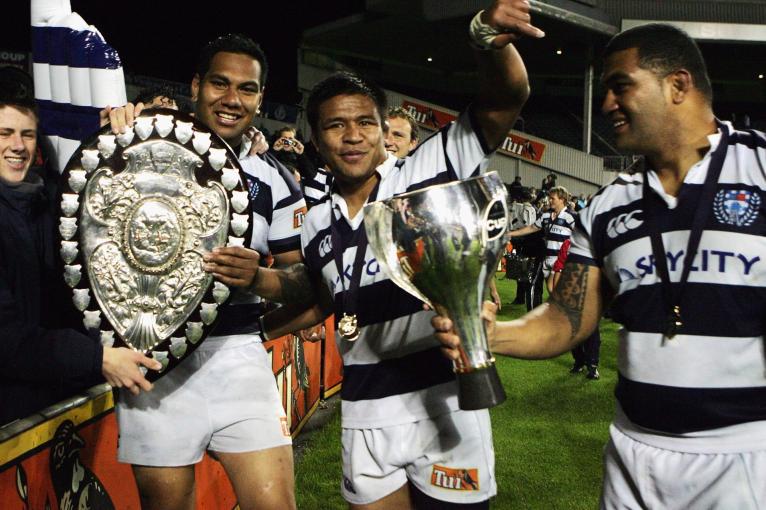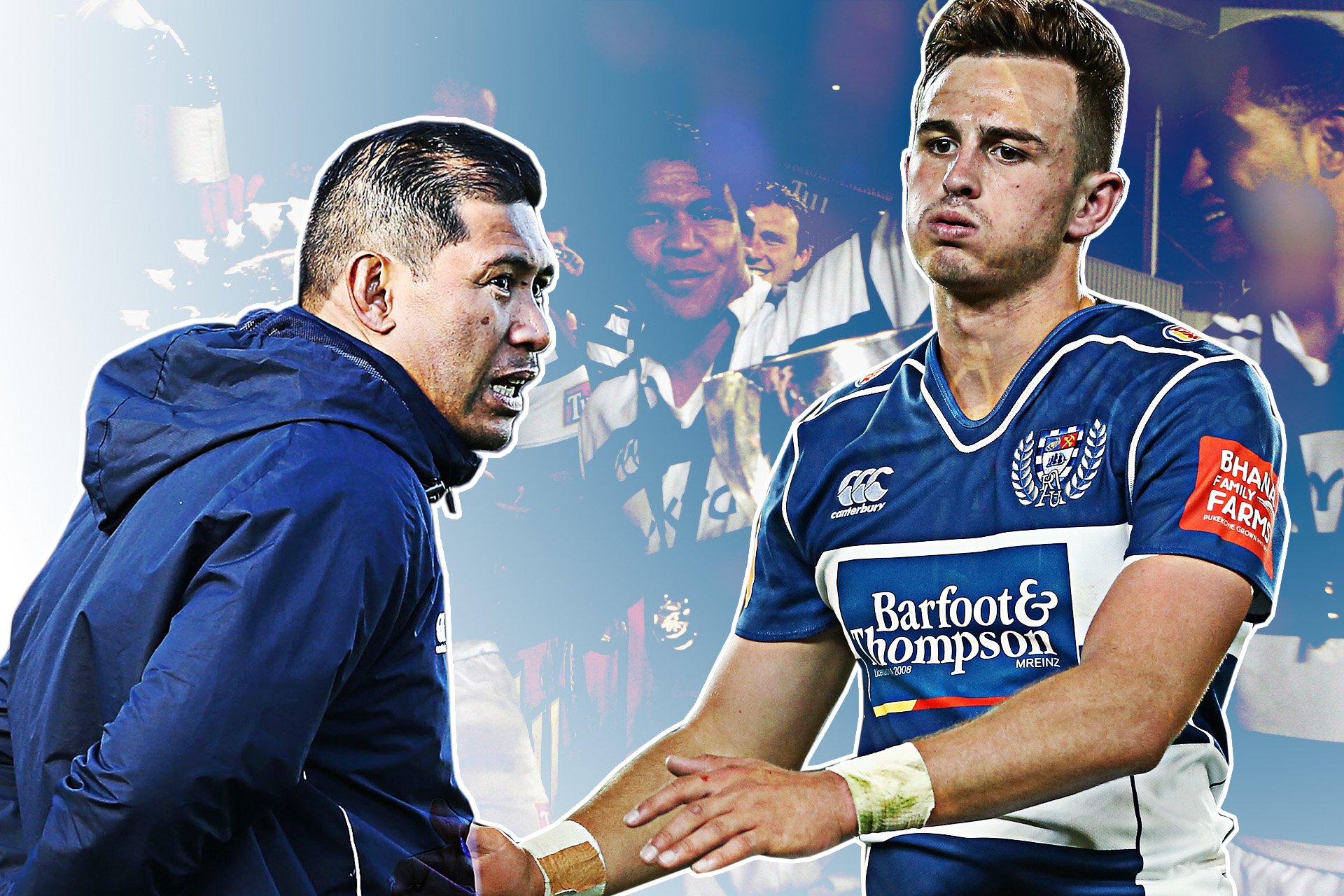After Auckland finished with just three wins in 2017’s Mitre 10 Cup, it was clear that something had to change.
During the off-season few sides had more roster turnover, as the province underwent a near-complete overhaul both on and off the field, evidenced by a brand new coaching staff and the 10 debutantes in their first side of the year.
With the 2018 season underway, a new era of Auckland rugby beckons.
Former All Blacks midfielder Alama Ieremia is now the man in charge, tasked with a challenge just as tough as any he met on the field during his playing days.
The 47-year-old is aiming to turn the fortunes of a union with a vast and rich history, one that helped build the foundation of rugby in New Zealand. Ieremia will have hopes of adding to the storied lineage of the country’s most successful province, and echoed this sentiment when his hiring was announced late last year.
“Auckland rugby is steeped in history. The size of the union, the challenges of getting the best out of our players – these are some of the things that attracted me to the job. I’m really excited about the challenge,” Ieremia said in December, when his three-year deal with the team was announced.
The new coach witnessed Auckland at the peak of their powers when he represented Wellington from 1992 to 2000. The men in blue and white hoops claimed five provincial titles during that span, carried by All Black legends like Michael Jones, Grant Fox and Zinzan Brooke.
Now it’s Ieremia’s turn to usher in the next era of great Auckland talent as the side chase an honour that has eluded them for the last 11 years – a record 17th provincial title.
The previously mentioned coaching staff consisting of Ieremia, his former Wellington teammate Filo Tiatia, schoolboy rugby mastermind Tai Lavea and legendary All Blacks coach Sir Graham Henry suggests the creation of an environment designed to nurture and develop the young and unproven squad.
Unfortunately, just minutes after the 2018 season kicked off it looked as if the needle hadn’t budged despite wholesale changes at both the back and front ends of the team. Auckland conceded a penalty shortly after the ball was live and before two minutes had passed, the opposing Counties Manukau side crossed for a try after a costly defensive lapse close to the line.
Early jitters were to be expected from such a young side as the defence was tested early and often. Counties Manukau spent 10% of the first half inside Auckland’s 22, forcing Ieremia’s side to be accurate in defence and staunch on their goal line for prolonged periods of play.
After a shaky start the early slip-ups eventually began to subside as possession evened out. Once Auckland managed some front-foot ball their talented backline was able to capitalise, with midfielder Tumua Manu breaking the line and putting in a chip for wing Salesi Rayasi to pounce on and score a debut try.
Former New Zealand Under 20 representative Harry Plummer directed traffic from first five-eighth, picking his moments when taking on the line or shifting the ball wide. Off the tee, the promising youngster missed a handful of early kick attempts but remained composed and was able to convert when it mattered.
He showed no nerves before nailing an angled 42 metre penalty at a crucial time to extend the Auckland lead to four with 15 minutes remaining. The kick eventually proved enough to seal a tight but crucial 23-19 victory, though the young pivot will rue missing a gimme in front of the sticks in the later stages.

When asked post-match about the decision to start 20-year-old Plummer – the second start of his young but promising career – Ieremia simply quipped “Why not?”.
“The best way to learn is to actually get amongst the fire, and I’m sure he’ll learn heaps from this. That’s the whole point,” he continued. “This competition is a sprint. You just can’t try and build people into it, you’ve got to try and hit the ground running.”
While the competition itself may be a sprint, there’s no doubt restoring this Auckland side to its former glory may be closer to a marathon.
Both Ieremia and first-time captain Blake Gibson made it clear that while it’s nice to have a win on the board, the side have plenty to work on, with discipline and set piece a key focus as the season progresses.
“This group, a very young group. We’ve got a lot of work to do, make no mistake, there’s a lot of work to do but just very proud of the effort, and my captain as well,” Ieremia said.
“First-time captain, it’s great that he [Gibson] stood up and also had some support out there. Very difficult when you have 10 new players but I think they held it together.”
23-year-old Gibson – a regular with the Blues in Super Rugby when healthy – has taken the role of captain in stride, and gives Ieremia an invaluable presence and experienced head in the forward pack to build around.
“I’ve been around a little bit now. I’m still young but I’ve been with Super [Rugby] for a while and also this Mitre 10 team,” Gibson said. “I can back on a bit of resilience and try lead from the front.”
In his first match as captain Gibson did just that, as he tallied eight tackles and picked up a try to boot.
Ieremia and Gibson will no doubt be pleased with the collective defensive effort of the side, as they made 101 tackles with just seven misses. The backline met every challenge that confronted them, with just two missed tackles between all ten backs in the 23 and no line breaks surrendered in the first forty minutes of action.

As both coach and captain alluded to, set piece and discipline was Auckland’s Achilles heel and could be what decides how far the team can go this year. A lack of discipline afforded Counties Manukau the early upper-hand in the contest, and the inexperienced front row – the starters sharing a single cap between them – were responsible for five of the side’s 10 conceded penalties.
It may still be some time before we see Auckland provide a genuine challenge for the competition’s top prize, but the side are definitely prepared to claw their way back to the top and showed flashes of brilliance once things started to click – even if they didn’t exactly explode out of the blocks.
With his first win in the books, rookie coach Ieremia’s next order of business is to iron out the kinks and continue to build on each performance. With the return of All Blacks lock Patrick Tuipulotu looming and marquee players like Akira Ioane coming off a strong individual Super Rugby performance, this group will only improve as they gain experience and key players like Plummer and Rayasi earn more time in the saddle.
While the competition itself may be a sprint, the marathon continues for Alama Ieremia and his talented young group as they chase down the rest of the pack.
In other news:

























